Roku vs. Fire TV: Which cheap smart TV is better?
Roku vs. Fire TV: Which cheap smart TV is better?
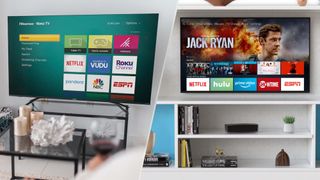
Choosing a smart Television with all the streaming services and connectivity congenital in ways not having to switch inputs, bargain with extra cables, or juggle different remotes. That's the beauty of a smart TV and two of the easiest systems currently available—and available in some rock-bottom-priced bargain sets—are those from Roku TV and Amazon Fire Boob tube.
- Masters alive stream: How to watch online, tee times, schedule and more
Building on the force of its prepare top boxes, Roku Telly at present comes in dozens of TVs from nearly 10 different brands, most prominently from TCL and Hisense. (Cheque out the best Roku TVs for our favorites!) So far, Amazon Fire Tv set only appears in sets from Toshiba sets and Best Buy's Insignia make – similar those seen in our Toshiba 4K Burn TV Edition (2020 model) review and Insignia 4K Ultra HD Fire TV Edition NS-55DF710NA21 review – which limits its scope. Simply given its market power, never count out Amazon and its Alexa vocalization recognition service.
To help you decide which would adapt your viewing style, be information technology Roku app aficionado or Alexa fan, we critiqued each smart Telly operating organisation in a variety of different areas, ranging from how easy they are to use to how well they reply to your spoken commands. Here are the results:
Roku vs. Fire Goggle box: Navigation and interface
The ancestry of Roku'due south big ruby-red screen can be traced back to the start streaming player it introduced in 2008. Not a lot has inverse in terms of navigating its screens since then—and that'southward a skilful thing. It was designed from ground upwards to appeal to TV viewers (rather than estimator users) with large legible icons and type.
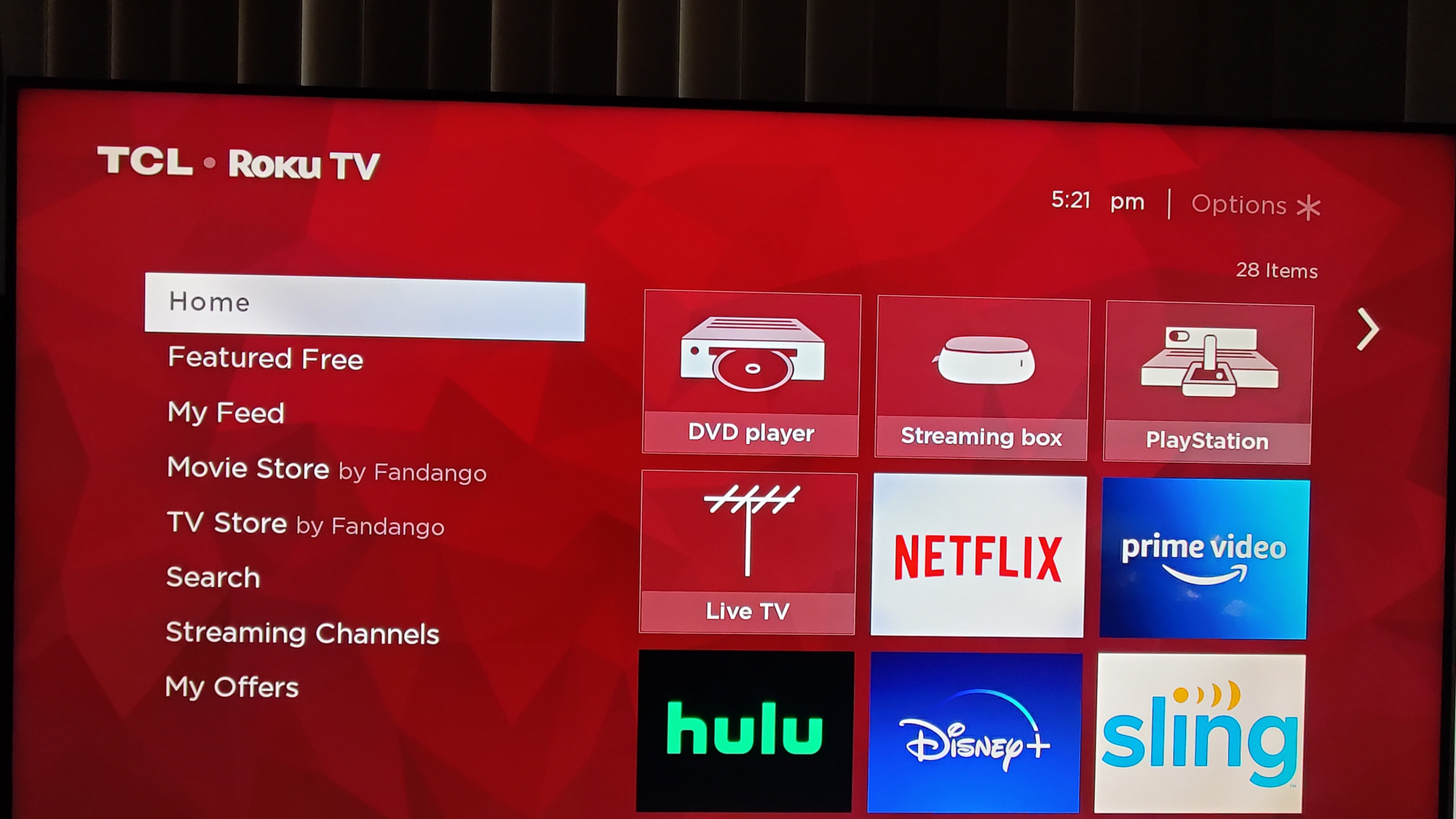
It boasts the simplest navigation, with a list of main options on the left vertical and conspicuous square tiles on the right representing "channels." The channels are actually over-the-pinnacle streaming services and apps, merely they are the essence of simplicity: It'due south like shooting fish in a barrel to detect and add together channels.
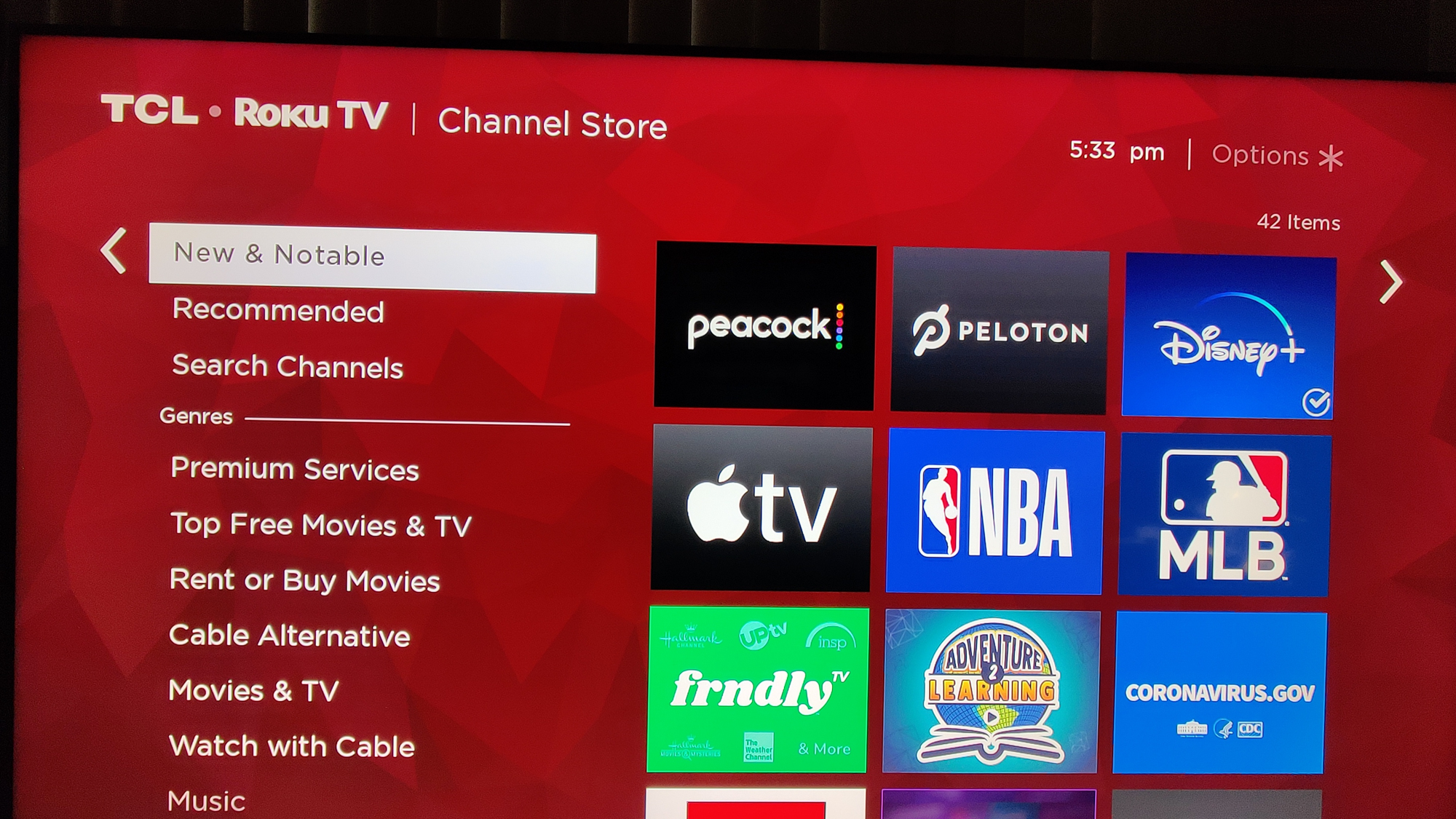
Roku's remote control is too a now much-copied simplification of erstwhile TV clickers. At that place's no numeric or alphabetic keys, simply a simple iv-way directional pad and about a dozen buttons to maneuver effectually the display and select programs.
To beef upward the built-in Roku software, Roku Television automatically recognizes popular attached devices, like gaming consoles and DVRs, so that they show up on the same abode screen. And if you're a cord-cutter, Roku will create a local electronic program guide for an attached antenna pulling in over-the-air broadcasts.
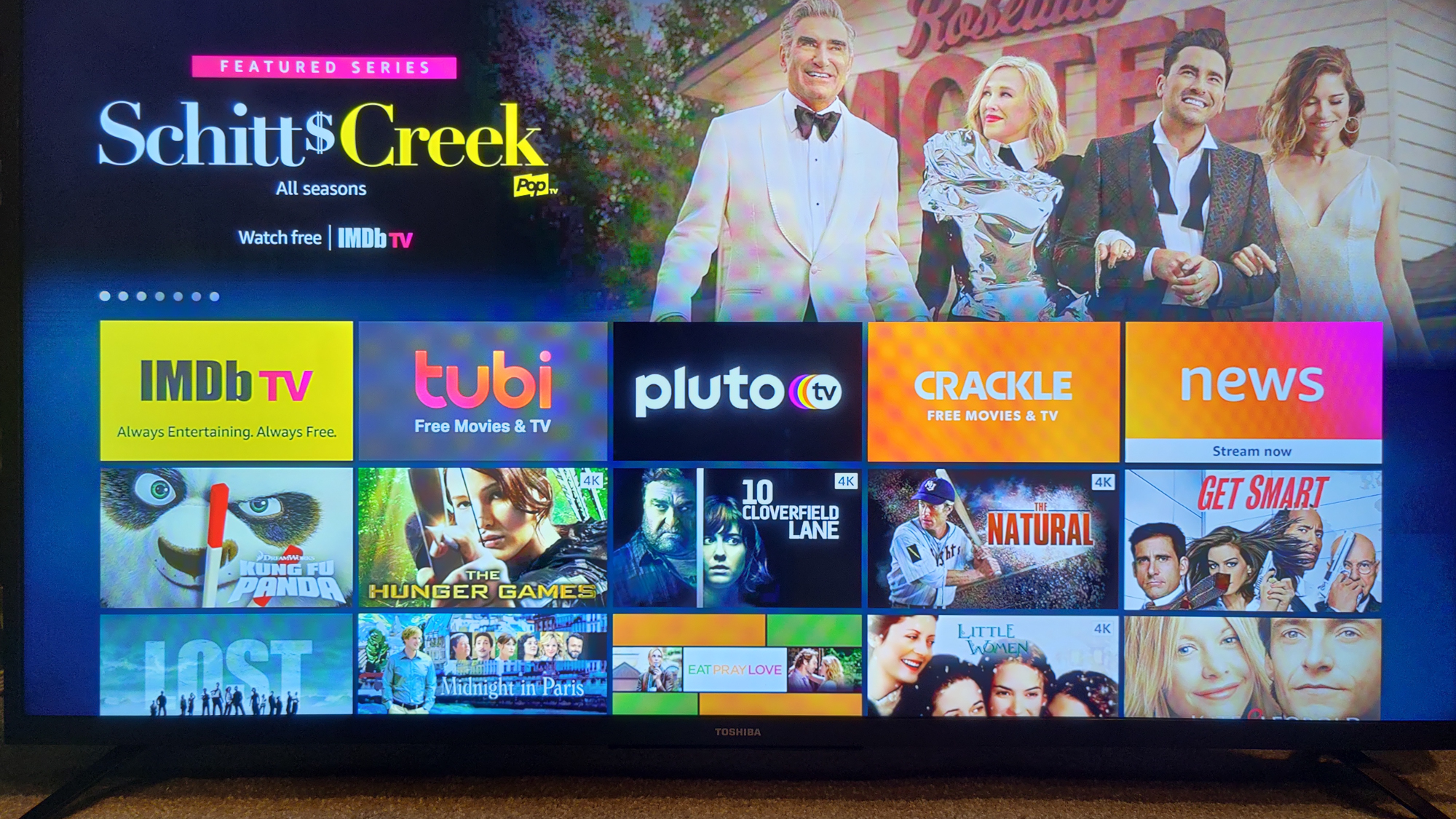
Past contrast, Amazon'southward Burn down TV is a flashy amalgam of horizontally organized icons with auto rolling trailers and teasers. It looks more up to appointment than Roku'south screen, but it besides belies its retail orientation and can make it challenging to find what y'all want quickly.
Bailiwick tabs across the top of the screen are divided into areas like "Live," "Your Videos," and "TV Shows." It can prove to be an odd arrangement; "Live" for example isn't live broadcast shows, it'southward actually streaming programming from a diversity of online sources (lower down on the screen you'll discover live broadcast shows). At that place'south also an inherent favoritism toward Amazon content. It's more than subtle than simply pushing Prime videos and music at you lot. Even the costless suggestions are from advertising-supported IMDB Tv—an Amazon subsidiary.
Winner: Roku. Roku may wait old-fashioned but it's a winning system. Why mess with success?
Roku vs. Burn down TV: App choice
Comparing the total number of apps each smart Boob tube system offers is an exercise in futility. That's because both Roku and Amazon Fire boast several thousand apps, more a lifetime's worth of channel surfing and binge watching. Moreover, in spite of occasional spats with certain providers, both services include all the streaming heavyweights–Netflix, Amazon Prime, Hulu, Disney +, and YouTube.
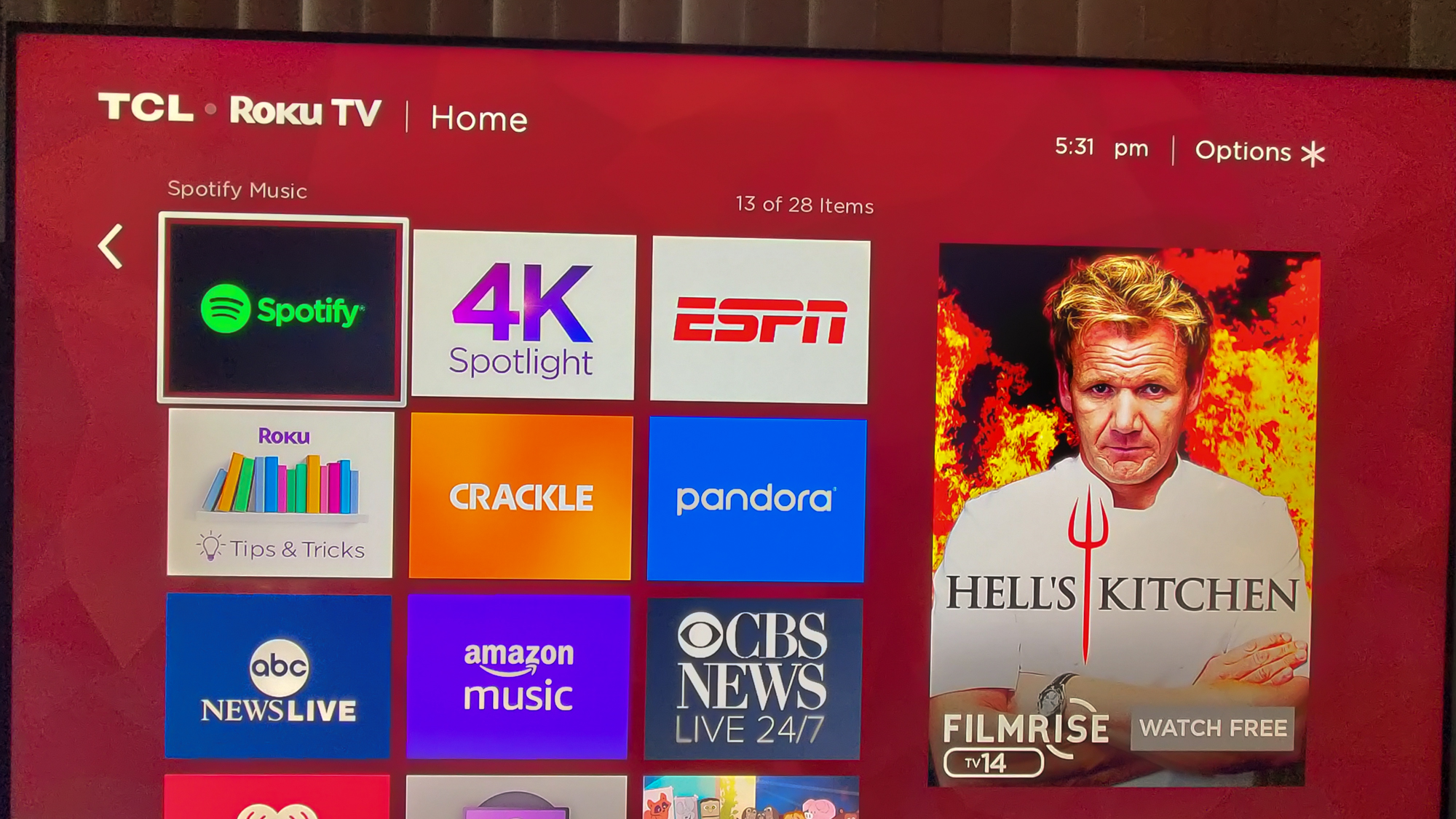
Roku's app arroyo is very straightforward. Information technology has screens of featured apps with a clear option to search and add together apps of your choice. After you download a channel/app, it will even tell you where it put it on the home screen so that you don't get lost looking for it. It is fiddling touches similar this that make Roku perfect for beginners or for those who don't want to waste material fourth dimension clicking through countless menus.
We also similar Roku's straightforward and independent approach to categorizing apps. The channel shop is organized in a logical manner, from top free movies to travel info. You can also cruise new channels or focus on 4K sources.
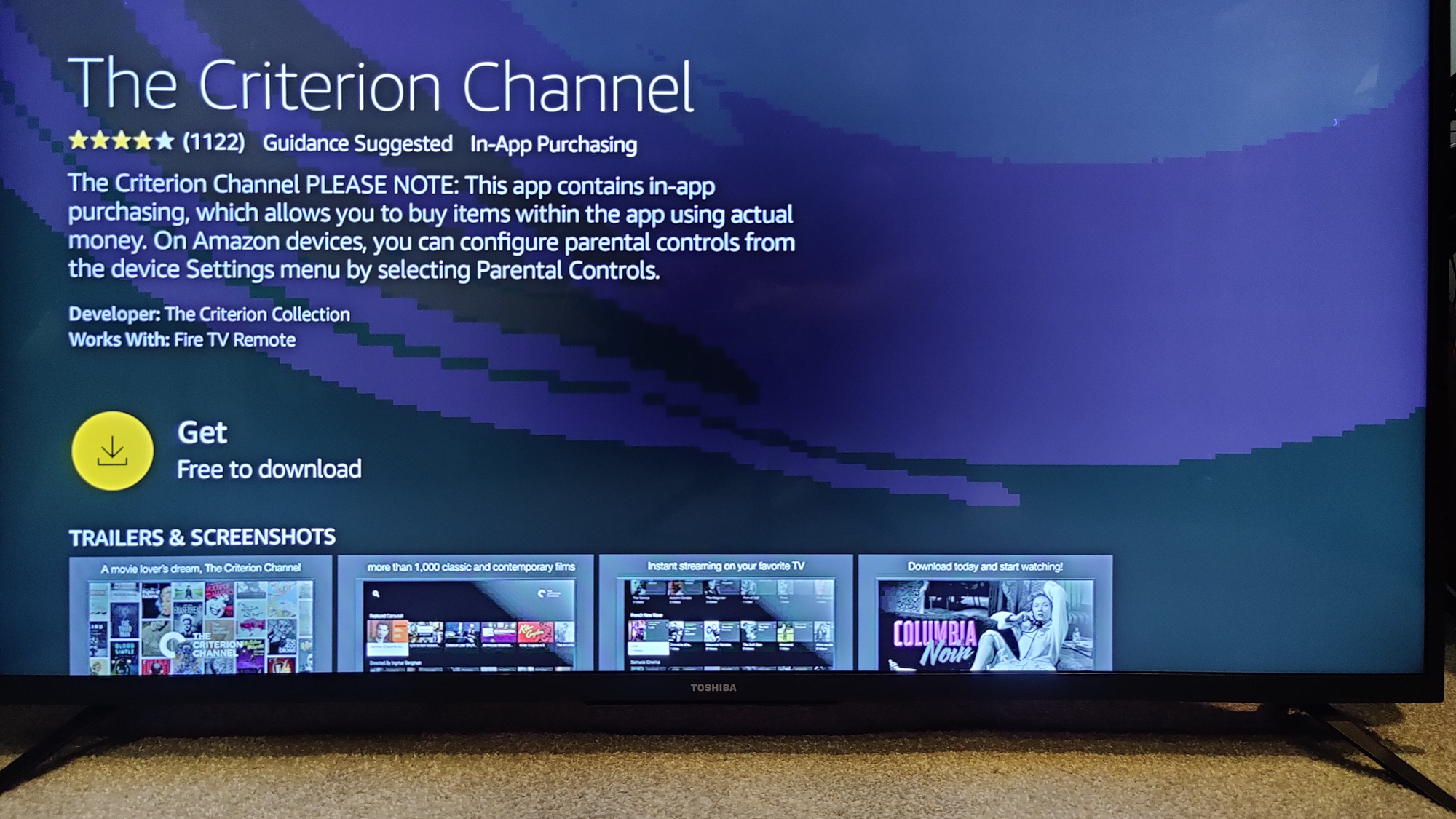
Amazon's Fire Television allows yous to browse apps collected under 27 dissimilar subject field areas from business to weather condition. It has all the major apps and music from Pandora to the Met Opera. You'll fifty-fifty find True cat Sounds here. That said, it has one major weakness.
If you go to the apps section or visit the app store in Fire TV, for example, there's no search option (it just shows y'all pop apps and those you use). To actually search the thousands of apps bachelor, you accept to dorsum out to the home screen so utilise the main search role off of that folio. If you were thinking that Alexa might help here, information technology turned in mixed results. It had no trouble finding the Criterion Channel, but couldn't ferret out Movies Anywhere.
Winner: Roku. Both offer an abundance of apps, only Roku makes is easiest to observe and add new ones.
Roku vs. Burn down TV: Search
Conducting text searches on each of these services couldn't be more different.
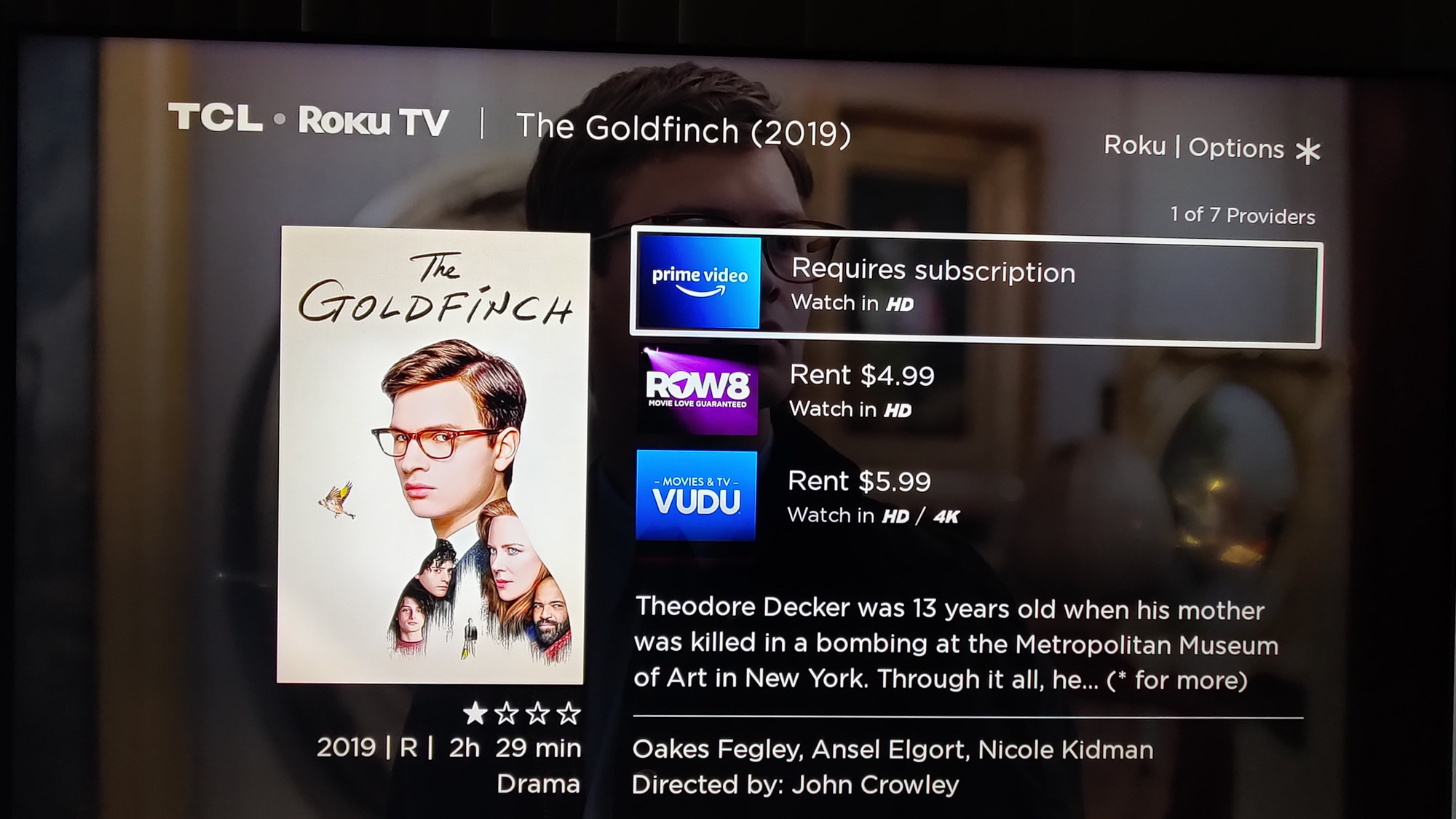
Roku takes a single-minded approach, restricting searches to aqueduct sources and programming. You can search for Clint Eastwood and get a quick list of all available programs featuring the actor/director, and each selection reveals the free or least expensive option first, followed by subscription sources and so more plush rental/purchase options.
Roku is as well smart enough to look through a diversity of apps and channels, fifty-fifty those y'all don't utilise. If you hit on 1 of those results, it will ask yous if you want to install the app. But y'all tin't conduct searches for people or topics on the Web; you won't get any results.
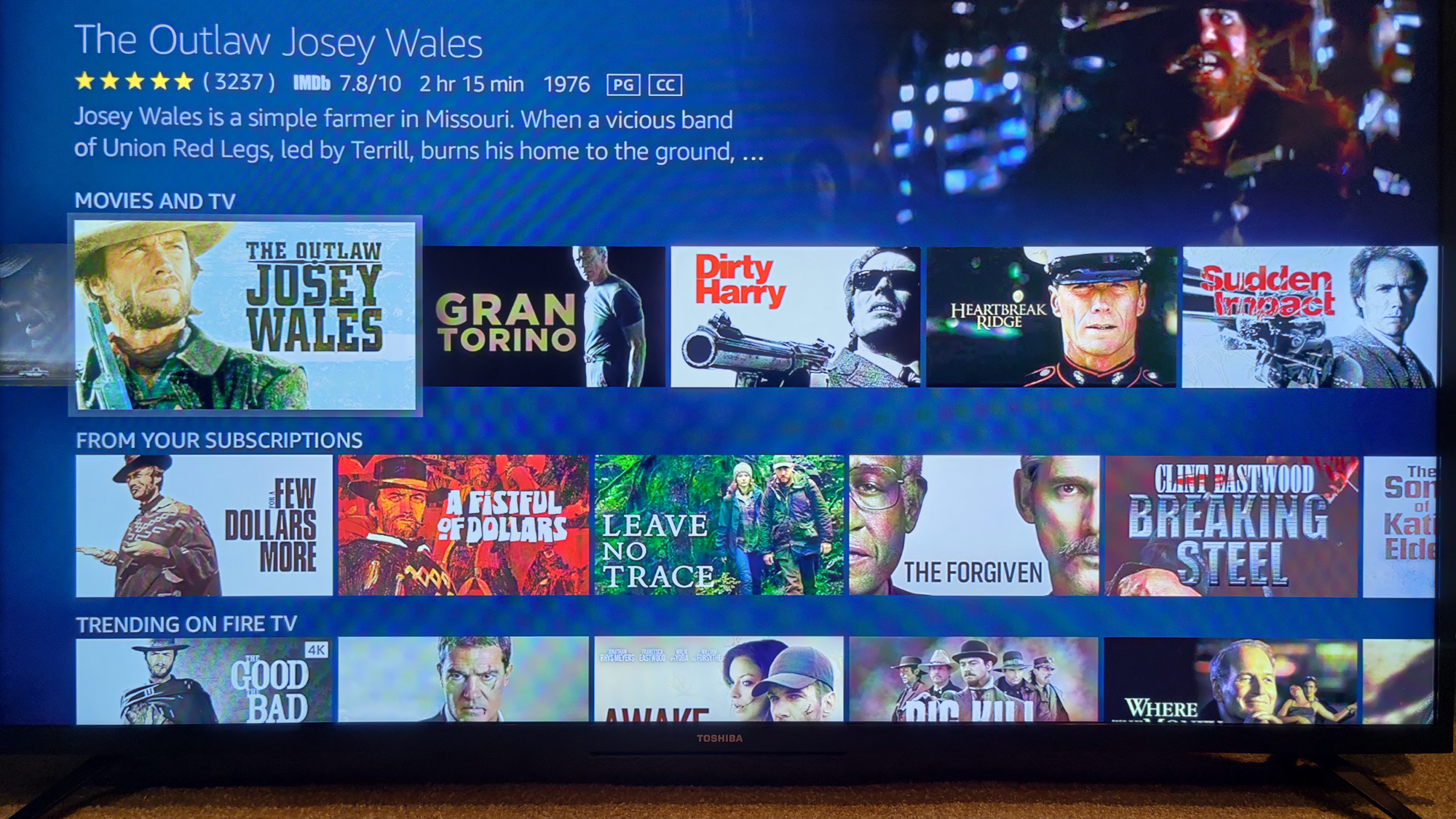
Amazon's Burn TV conducts text searches in much the same way. Ask for an actor or manager like Eastwood and you lot receive a tiled carte of options, listing subscriptions start (Amazon Prime, of form), followed by free with advertisement options and then other sources. Annoyingly, if you lot find a pic you want and renting or purchasing is the but pick, Amazon Fire Tv set doesn't make it articulate where the rental is coming from...until you cull to pay, and then normally the fine impress reveals it's an Amazon purchase.
Amazon's search functions also extend beyond video fare. If it doesn't run into any programming results, for example, it will ask if you want to continue the search on the Spider web, using its Silk browser, or on YouTube.
Winner: Necktie. While Amazon offers broader search options, its emphasis on its own programs means that Roku's more targeted however independent results are often preferable if you're but looking for something to spotter on Television set.
Roku vs. Fire Television set: Voice recognition
Intimately tied to search these days is voice recognition, a feature most viewers volition probably use the most. With both systems, it's merely a matter of pushing and holding the mic push button on the remote control and asking for whatsoever you lot want.
Again, Roku's vocalisation recognition focuses solely on finding programs and Goggle box functions. Yous tin switch to a connected PlayStation, render to the domicile screen, or you can inquire for "Akira Kurosawa films" and get the right movies every time, no problem. You'll see icons for everything from Seven Samurai to Dreams. Roku volition fifty-fifty break down results into movies, free, buy/rent, and subscriptions. It listed our Benchmark Channel selection, which made watching the movie free, as well equally the fact that we could hire it from Amazon Prime for $two.99.
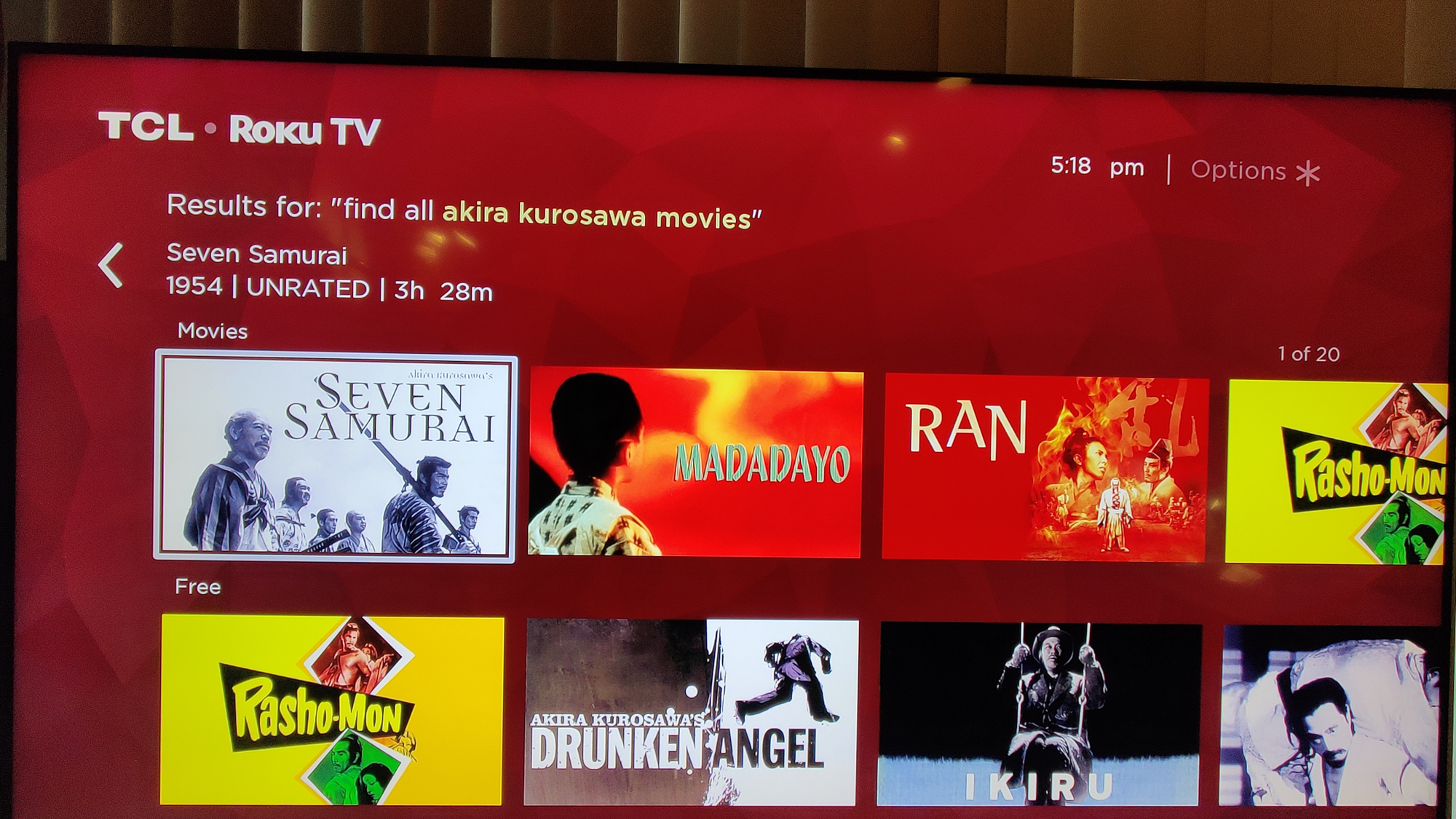
Roku will likewise search across apps like YouTube, and let you control bones TV functions. Yous can turn on airtight captions, for example, and you lot can switch to different channels no matter where you are in Roku's interface. What Roku cannot do is give yous a atmospheric condition forecast or tell y'all a joke.
Of form, that'due south where Amazon'due south Alexa really shines, and it'southward congenital into Fire TV. As with Roku, you press and hold the remote's mic push to inquire information technology annihilation from "What's the weather for tomorrow?" to "Find Clint Eastwood movies" and y'all'll generally get the right answer.
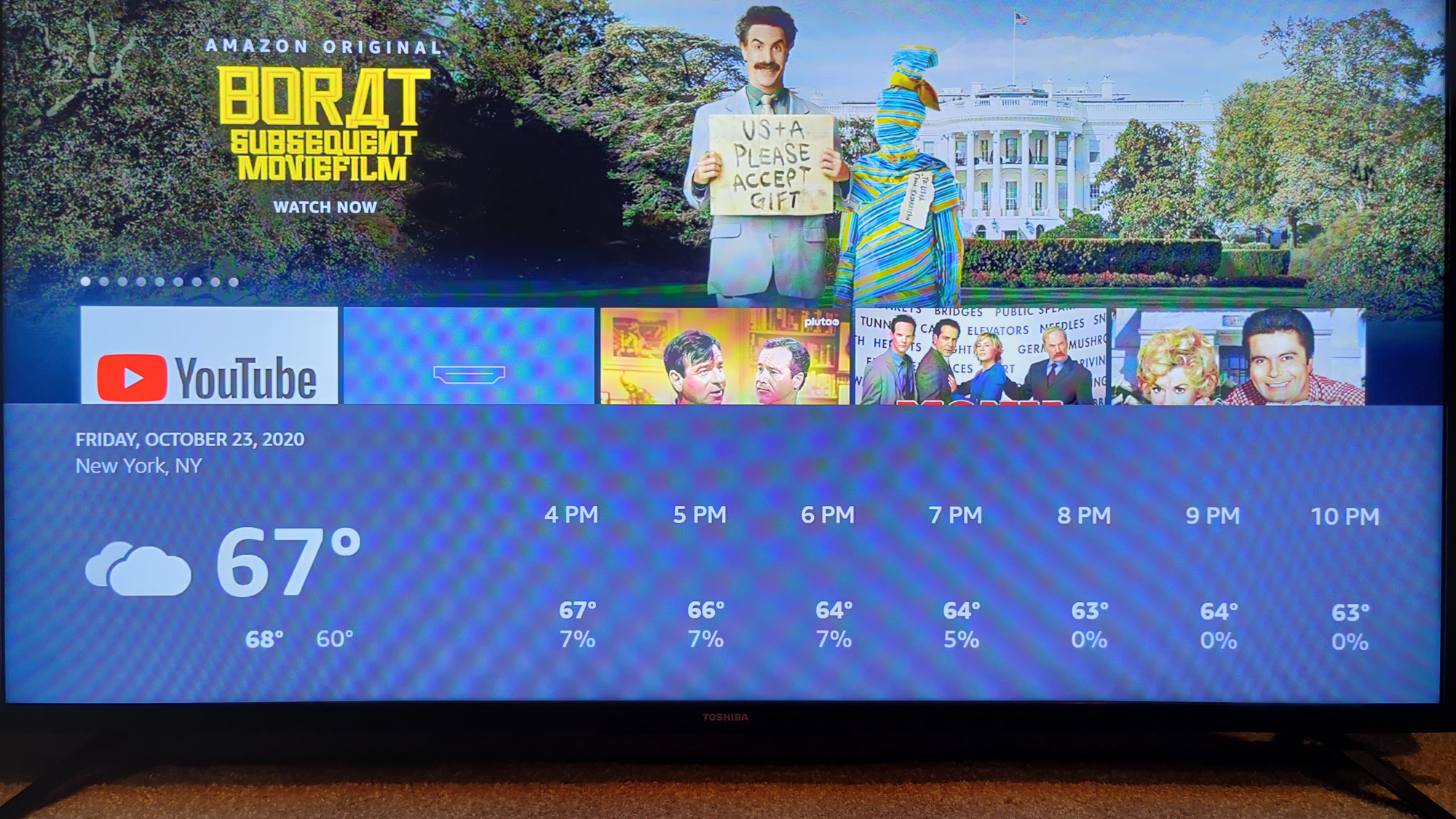
Where Alexa struggles in Burn Television receiver is consistency; it supports many popular apps, including the likes of Netflix and Hulu, just restricts some voice search results and commands within particular apps. Enquire for something while pausing the YouTube app, and all you'll receive are YouTube results. Ask the same question in Pluto, and you lot'll become a complete listing of results from multiple sources. Such inconsistent performance is likely to confuse viewers. Fire Television receiver can likewise be oblivious to context. Ask for the Movies Anywhere and instead of the app yous may receive a listing of movies playing in theaters nearly you (assuming in that location are any open). So Amazon still has some piece of work to exercise getting Alexa to exist more Television receiver focused.
Conversely, if yous're an Alexa addict, yous'll find the wider perspective helpful. Inquire for the weather condition forecast and not only will you receive Alexa'due south spoken summary simply you'll too get the graphical representation of the highs and lows on your screen. Tell Alexa to read the news to you, and it will requite y'all a variety of choices from ABC to the BBC. Ask it to tell you a joke, and it's got scores of them. Of class, if you ask Alexa for music, similar Steely Dan, you'll automatically be directed to Amazon Music rather than Pandora.
Only wait, isn't there a Roku skill in Alexa? Yeah, if yous already have an Alexa device, yous tin add your Roku credentials to it and use Alexa to command Roku, await for programs and even control the Television set's volume. But it isn't equally simple or complete equally the built-in option from Amazon.
Winner: Amazon. Even though Alexa isn't available on all apps it'south still the leader.
Roku vs. Fire Television: Privacy and advertising
If you are trying to protect your privacy and shun advertising, then you lot'll prize independence and choice. Hither Roku has a definite edge considering information technology's an independent platform. It isn't owned by a major Hollywood studio or humongous online retailer. And then you aren't bombarded with ads, and yous are generally presented with unbiased choices. The ane exception is that Roku has special deal with Comcast's Fandango to exist the default online movie store pick. But users can add any video store they want as a channel, so information technology'southward hardly a limitation.
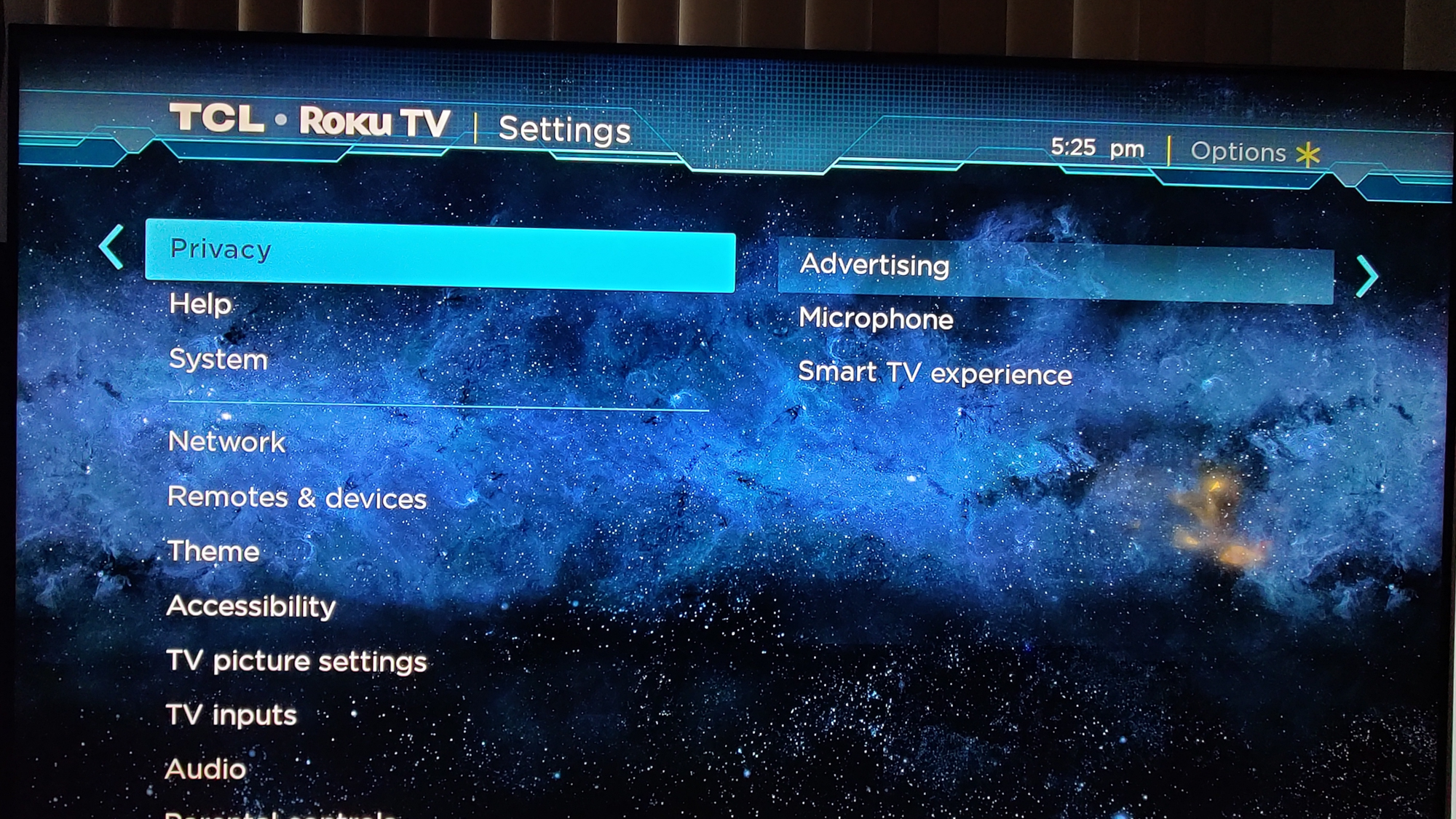
As for privacy problems, Roku does state that it if you opt for the smart TV experience it will collect information on your viewing habits and mayhap share that information with business organisation partners. You can opt out, but information on streaming channels may still be collected past Roku. Y'all can also alter settings to make sure channels ask for permission earlier using the microphone.
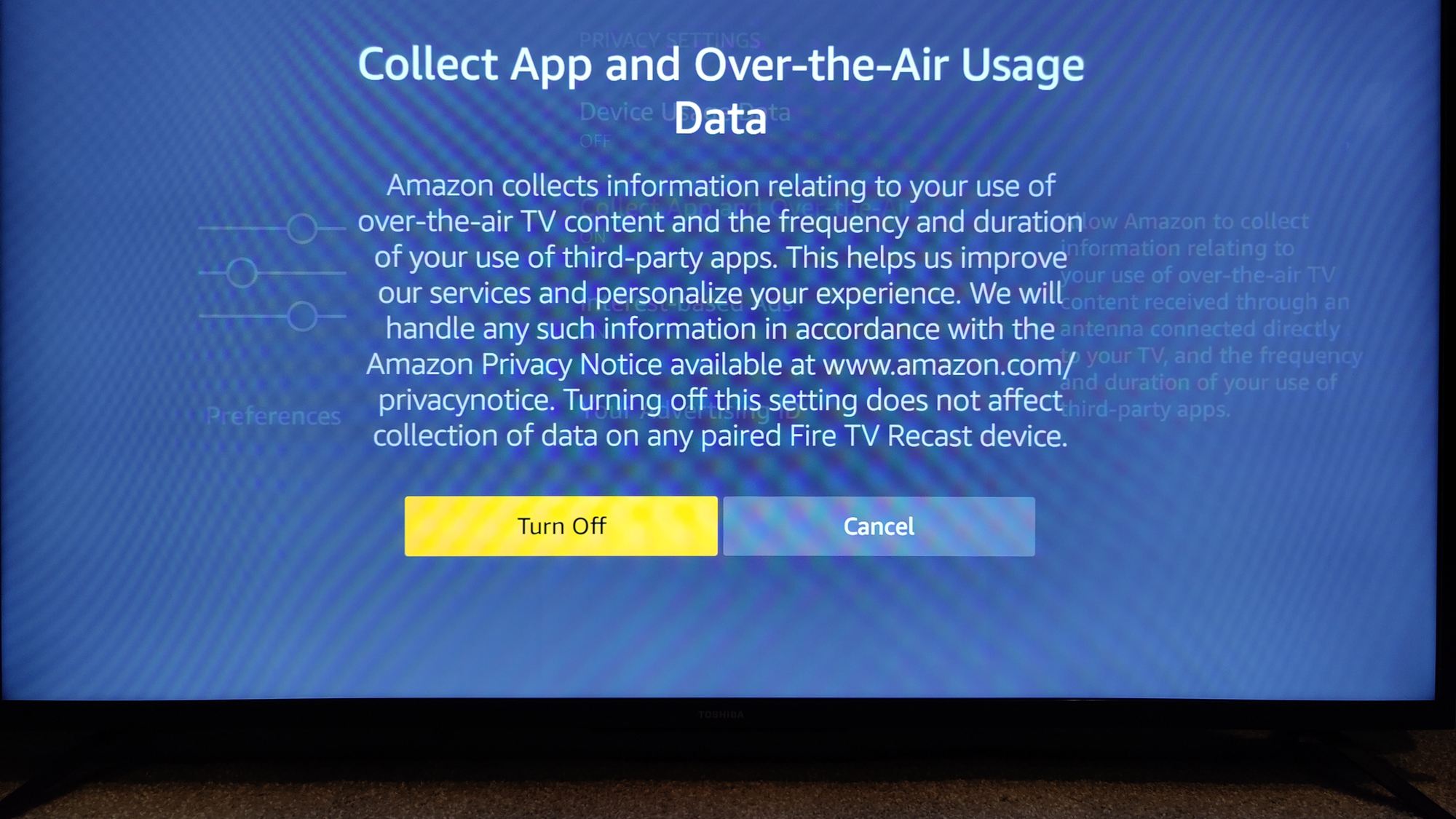
Amazon, of course, tracks its Prime number subscribers and online retail customers. That can be user-friendly, but also a petty intimidating if yous think about combining that information with your TV viewing habits. Amazon Fire TV does track all this information every bit its default mode. However, in the settings carte you tin can plough off targeted ads, and privacy and tracking information. But no affair what settings one chooses, users should recognize that the potential to combine information on your purchasing habits, location, viewing habits, and Alexa queries tin make for a worrisome incursion into one's private life.
Winner: Roku. Simply put, Roku'south independence means it has less ability in tracking you and isn't constantly foisting its products on viewers.
Roku vs. Burn Goggle box: Smart home
The smart home landscape has undergone a radical change due to the lack of a de facto standard and the rise of Alexa. While companies fought over protocols and wireless standards, consumers discovered another simpler solution was to apply Alexa skills to command lights and cameras. Amazon takes reward of that popularity in its Fire TV. You tin can exercise much of the same smart home control and control functions from the TV. Just tell it, for case, to turn on the kitchen lights and it volition work—equally long equally y'all've already registered that skill and the associated products at home.
The bottom line: It is much easier to run Amazon skills and compatible smart home devices using Alexa in Burn down Boob tube. Roku doesn't offer equivalent options however.
Winner: Amazon. Alexa has become the de facto standard in the smart dwelling infinite.
Roku vs. Fire Tv: Overall winner
Most TV viewers are going to exist happier with built-in Roku TV capabilities than sets using Amazon Burn TV smarts. Roku has had more than fourth dimension to hone its skills and focus on streaming video programming. And it continues to take significant power in the digital player market: Apps that don't get on Roku usually fail to gain much traction.
| Roku | Amazon Fire Idiot box | |
| Navigation | ✓ | |
| App Selection | ✓ | |
| Search | ✓ | ✓ |
| Vocalism Recognition | ✓ | |
| Privacy and Advertising | ✓ | |
| Smart Home | ✓ | |
| Overall | 4 | 3 |
We still like Roku equally the winner. However, Amazon'southward Fire TV has an ace in the hole called Alexa. So far, the company hasn't managed to fully leverage that on TVs, but we expect it will be a more formidable competitor in the future.
Source: https://www.tomsguide.com/news/roku-vs-fire-tv
Posted by: guestthisidiever87.blogspot.com


0 Response to "Roku vs. Fire TV: Which cheap smart TV is better?"
Post a Comment